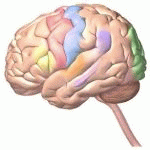Neurology
|
9 october 2015 01:50:01 |
| Upregulation of the receptor-interacting protein 3 expression and involvement in neural tissue damage after spinal cord injury in mice (BMC Neuroscience) |
|
Tweet Background:
Necroptosis is a newly identified type of programmed cell death that differs from apoptosis. Recent studies have demonstrated that necroptosis is involved in multiple pathologies of various human diseases. Receptor-interacting protein 3 (RIP3) is known to be a critical regulator of necroptosis. This study investigated alterations in the RIP3 expression and the involvement in neural tissue damage after spinal cord injury (SCI) in mice.
Results:
Immunohistochemical analysis demonstrated that the RIP3 expression was significantly increased in the lesion site after spinal cord hemisection. The increased expression of RIP3 started at 24 h, peaked at 3 days and lasted for at least 21 days after hemisection. The RIP3 expression was observed in neurons, astrocytes and oligodendrocytes. Western blot analysis also demonstrated the RIP3 protein expression significantly upregulated in the injured spinal cord. RIP3 staining using propidium iodide (PI)-labeled sections showed most of the PI-labeled cells were observed as RIP3-positive. Double staining of TUNEL and RIP3 demonstrated that TUNEL-positive cells exhibiting shrunken or fragmented nuclei, as generally observed in apoptotic cells, rarely expressed RIP3.
Conclusions:
The present study first demonstrated that the expression of RIP3 is dramatically upregulated in various neural cells in the injured spinal cord and peaked at 3 days after injury. Additionally, most of the PI-labeled cells expressed RIP3 in response to neural tissue damage after SCI. The present study suggested that the upregulation of the RIP3 expression may play a role as a novel molecular mechanism in secondary neural tissue damage following SCI. However, further study is needed to clarify the specific molecular mechanism underlying the relationship between the RIP3 expression and cell death in the injured spinal cord. |
| 132 viewsCategory: Neurology |
 Deficits in tongue motor control are linked to microstructural brain damage in multiple sclerosis: a pilot study (BMC Neurology) Deficits in tongue motor control are linked to microstructural brain damage in multiple sclerosis: a pilot study (BMC Neurology)Impaired trial-by-trial adjustment of cognitive control in obsessive compulsive disorder improves after deep repetitive transcranial magnetic stimulation (BMC Neuroscience) 
|
| blog comments powered by Disqus |
MyJournals.org
The latest issues of all your favorite science journals on one page
The latest issues of all your favorite science journals on one page



